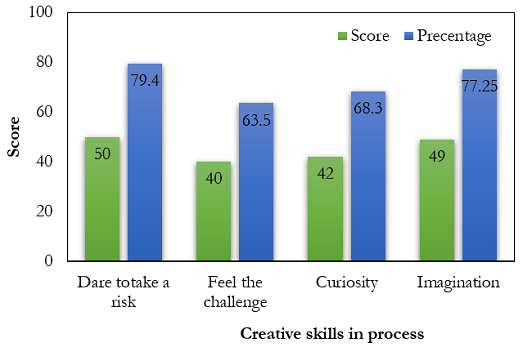
Role-Play Simulation for Assessing Students’ Creative Skill and Concept Mastery
Abstract
Full Text:
Download PDFReferences
Agustin, R. R., Liliasari, L., Sinaga, P., & Rochintaniawati, D. (2017). Pre-service Science Teachers (PSTs)’ Creative Thinking Skills on Atoms, Ions and Molecules Digital Media Creation. Journal of Physics: Conference Series, 895(1), 012114.
Anderson, L. W. (2001). A Taxonomy for Learning, Teaching and Asessing: A revision of Bloom's Taxonomy of Educatinal Objectives. New York: Longman.
Anderson, L. W., & Krathwohl, D. R. (2001). A taxonomy for Learning, Teaching and Asessing: A Revision of Bloom's Taxonomy of Educational Objectives. Boston: Pearson Education Group.
Azra, A. (2002). Paradigma Baru Pendidikan Nasional: Rekonstruksi dan Demokrasi. Jakarta: Kompas,
Bjork, C. (2005).Indonesian Education: Teachers, Schools and Central Bureaucracy. New York and London: Routledge.
Craciun, D. (2010). Role-playing as a creative method in science education. Journal of Science and Arts, 10(1), 175.
Creswell, J. W. (2012). Educational Research: Planning, Conducting and Evaluating Quantitative Research, 4th Ed. Boston: Pearson.
Daniau, S. (2016). The Transformative Potential of Role-Playing Games—: From Play Skills to Human Skills. Simulation & Gaming, 47(4), 423-444.
Edmiston, B, & Wilhem, J.D. (1998) Repositioning views/ review positions. In B J. Wagner (Ed). Educational drama and language arts: What research shows (pp. 90-117). Chicago, IL: Heinamann.
Freire, S., Baptista, M., & Freire, A. (2016). Sustainability and Science Learning: Perceptions from 8th Grade Students Involved with a Role Playing Activity. Universal Journal of Educational Research, 4(8), 1757-1763.
McSharry, G., & Jones, S. (2000). Role-Play in Science Teaching and Learning. School Science Review, 82(298), 73-82.
Mijares-Colmenares, B. E., Masten, W. G., & Underwood, J. R. (1993). Effects of trait anxiety and the Scamper technique on creative thinking of intellectually gifted students. Psychological reports, 72(3), 907-912.
Nurkencana. (2005). Evaluasi Hasil Belajar Mengajar . Surabaya: Usaha NAsional.
Önkal, D., Sayım, K. Z., & Lawrence, M. (2012). Wisdom of group forecasts: Does role-playing play a role?. Omega, 40(6), 693-702.
Prima, E. C., Putri, A. R., & Rustaman, N. (2018). Learning Solar System Using PhET Simulation to Improve Students' Understanding and Motivation. Journal of Science Learning, 1(2), 60-70.
Prima, E. C., Putri, C. L., & Sudargo, F. (2017). Applying Pre and Post Role-Plays supported by Stellarium Virtual Observatory to Improve Students’ Understanding on Learning Solar System. Journal of Science Learning, 1(1), 1-7.
Rumore, D., Schenk, T., & Susskind, L. (2016). Role-play Simulations for Climate Change Adaptation Education and Engagement. Nature Climate Change, 6(8), 745.
Stevens, R. (2015). Role-play and Student Engagement: Reflections from The Classroom. Teaching in Higher Education, 20(5), 481-492.
Tanner, D. (2012). Using Statistics to Make Educational Deciscions. Los Angles: SAGE Publications Inc.
Yasin, A. I., Prima, E. C., & Sholihin, H. (2018). Learning Electricity using Arduino-Android based Game to Improve STEM Literacy. Journal of Science Learning, 1(3), 77-94.
DOI: https://doi.org/10.17509/jsl.v2i3.14848
Refbacks
- There are currently no refbacks.
Copyright (c) 2019 Lilit Rusyati

This work is licensed under a Creative Commons Attribution-ShareAlike 4.0 International License.


Jl. Dr. Setiabudhi 229 Bandung 40154, West Java, Indonesia











